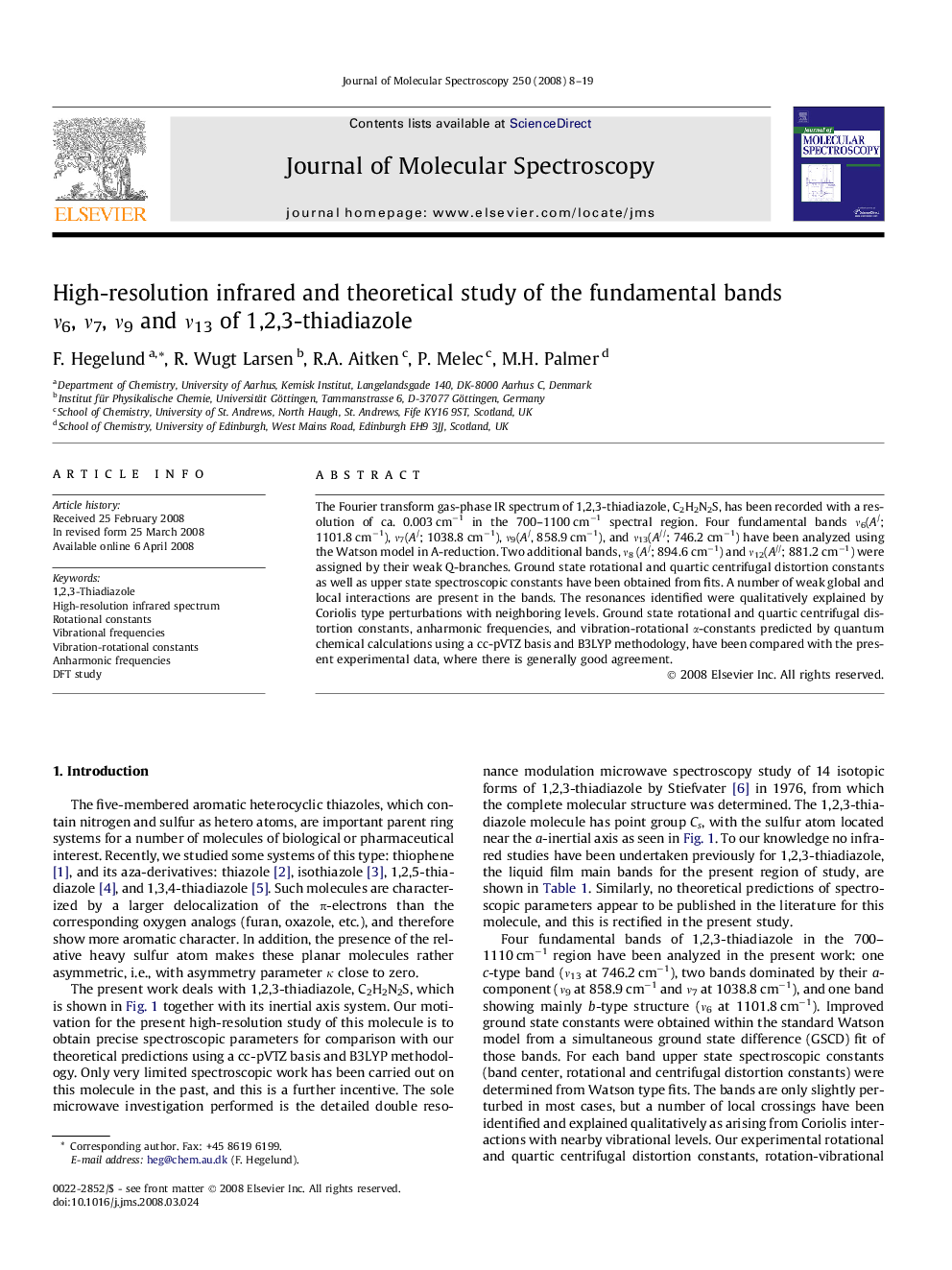| Article ID | Journal | Published Year | Pages | File Type |
|---|---|---|---|---|
| 5415696 | Journal of Molecular Spectroscopy | 2008 | 12 Pages |
Abstract
The Fourier transform gas-phase IR spectrum of 1,2,3-thiadiazole, C2H2N2S, has been recorded with a resolution of ca. 0.003 cmâ1 in the 700-1100 cmâ1 spectral region. Four fundamental bands ν6(A/; 1101.8 cmâ1), ν7(A/; 1038.8 cmâ1), ν9(A/, 858.9 cmâ1), and ν13(A//; 746.2 cmâ1) have been analyzed using the Watson model in A-reduction. Two additional bands, ν8 (A/; 894.6 cmâ1) and ν12(A//; 881.2 cmâ1) were assigned by their weak Q-branches. Ground state rotational and quartic centrifugal distortion constants as well as upper state spectroscopic constants have been obtained from fits. A number of weak global and local interactions are present in the bands. The resonances identified were qualitatively explained by Coriolis type perturbations with neighboring levels. Ground state rotational and quartic centrifugal distortion constants, anharmonic frequencies, and vibration-rotational α-constants predicted by quantum chemical calculations using a cc-pVTZ basis and B3LYP methodology, have been compared with the present experimental data, where there is generally good agreement.
Keywords
Related Topics
Physical Sciences and Engineering
Chemistry
Physical and Theoretical Chemistry
Authors
F. Hegelund, R. Wugt Larsen, R.A. Aitken, P. Melec, M.H. Palmer,
